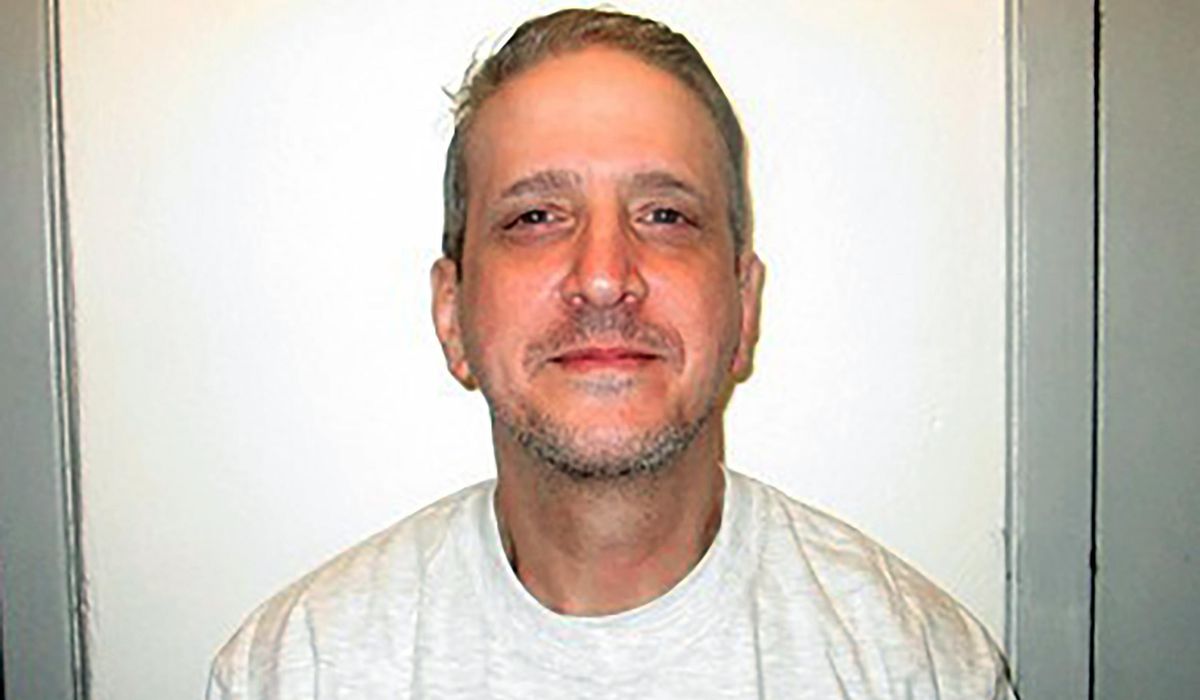


The Supreme Court grappled Wednesday with whether to give a twice-convicted murderer a new trial and save him from a death sentence in an unusual dispute in which even the state is asking the justices to order a third trial for the death row inmate.
Richard Glossip and Oklahoma Attorney General Gentner Drummond argued to the justices that a new trial is warranted because the state’s key witness — Justin Sneed — was on lithium and suffered from mental illness.
They contend the defense did not have that information before trial, and it would go to the witness’s credibility.
Mr. Drummond says that the Oklahoma Court of Criminal Appeals — which upheld Glossip’s death sentence — can’t be the final word, calling on the justices to step in on behalf of the state and Glossip.
“When the state’s one indispensable witness had bipolar disorder and not a toothache or common cold, that fact is material and warrants a new trial,” said Paul D. Clement, an attorney arguing on behalf of Mr. Drummond. “Without his testimony, there is no way to get a conviction of murder, let alone the death penalty.”
Seth P. Waxman, the lawyer representing Glossip, told the court that the defense faced pushback when requesting the mental health records, saying it was labeled a “fishing expedition.”
“Richard Glossip was convicted on the word of one man,” he said.
Christopher G. Michel, the lawyer appointed by the high court to defend the Oklahoma Court of Criminal Appeals decision to uphold the death sentence, said that Glossip’s attorneys could have obtained the mental health records at the jail in order to discover Sneed had taken lithium.
“They’ve had that since 1997,” Mr. Michel said, urging the court to affirm the Oklahoma court’s reasoning.
The Supreme Court has put Glossip’s execution on hold as it weighs the case.
The justices appeared skeptical of the Oklahoma court’s decision to maintain the death penalty against Glossip, with Justice Sonia Sotomayor saying that the key witness’ mental health diagnosis “would have explained the murder.”
Justice Brett M. Kavanaugh also stressed the importance of Sneed’s testimony.
“The whole case depended on his credibility,” Justice Kavanaugh said.
The legal battle comes decades after Barry Van Treese was found dead on Jan. 7, 1997, in an Oklahoma City hotel.
He was reportedly confronting the manager, Glossip, over concerns about embezzling money.
When Van Treese disappeared in 1997, Glossip did not take part in the search but sent authorities down the wrong path through false statements, court records contend.
Glossip allegedly hired Sneed to kill Van Treese. Sneed confessed to authorities, implicating both of them, and testified for the state against Glossip at trial.
Glossip was convicted but was granted a second trial due to ineffective assistance of counsel. The second trial also rendered Glossip guilty, and he was sentenced to death.
A decision is expected by June.
• Alex Swoyer can be reached at aswoyer@washingtontimes.com.
